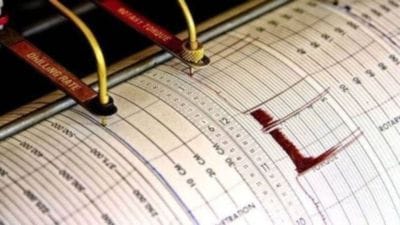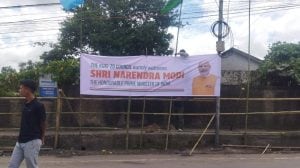Unknown soldier in war, invisible prisoner in peace
Recent events have thrown light on the condition of prisoners of war, and in the case of India, prisoners not only of past wars but also of ...

Recent events have thrown light on the condition of prisoners of war, and in the case of India, prisoners not only of past wars but also of tense periods of peace.
In 1947-48, when the newly created Pakistan unleashed tribals and its army in Jammu & Kashmir, the word terrorism was not in vogue. In this war and two more, of 1965 and 1971, between India and Pakistan, as well as in the past 15 years, the latter’s troops tortured and dismembered many Indian Armed Forces personnel who were captured. While declared Indian prisoners of war were kept in far from satisfactory conditions, the worst case of prolonged inhuman torture has been the wrongful confinement and non-acknowledgement by Pakistan of 54 Indian Armed Forces officers and ranks, who have been languishing in various jails there, since the 1971 war.
Despite efforts of the Indian government, the ICRC, other organisations and relatives, who visited Pakistan, the existence of these individuals has not only not been acknowledged by Pakistan, but each time the family members of these captives visited there, they were shifted to some other jail. Compare this to India, whose Army, during the same war, captured 93,000 Pakistan armed forces all – ranks as PoWs, treated them humanely and repatriated each of them in a healthy state and with a packet of sweets to boot.
So overcome were they that some could not help expressing their surprise at not being mistreated, leave alone tortured. An incident recounted by Field Marshal Sam Manekshaw deserves mention here. Shortly after the 1971 war, Manekshaw was invited to visit Pakistan by its second dictator President, General Yahya Khan (both, ranking as Majors, had been colleagues in Army Headquarters’ Military Operations Branch, in the period just before and until Partition). During this visit, Manekshaw called on the Punjab Province Governor. When the Governor was seeing him off, a member of his retinue came and placed his turban at Manekshaw’s feet. When a surprised Manekshaw asked why, the man emotionally recounted that his five sons, all serving in Pakistan Army and then in Indian custody as PoWs, were in good health and he had received letters from all of them.
A retired Lieutenant General of Indian Army, who as a young officer, was taken captive by Pakistan Army during the 1965 war, recalled his interrogations to get more than his service number, rank and name and, as a result, his transfer to an undeclared prisoner camp for two months of solitary confinement. A Red Cross packet of clothes was provided to the inmates of this camp two hours before they were moved out for their repatriation the next day.
The Indian Express will be thanked and blessed by many in the Armed Forces for breaking the story about Naik Jagsir Singh and Sapper Mohammed Arif had been declared as missing / deserters by their unit, an engineer regiment, since after Operation Vijay, launched in May 1999. The breaking of this story helped speed up the inter-ministerial process on both sides of the border towards their repatriation.
It is not only the 54 personnel mentioned earlier, who have been victims of, call it cruelty or worse. On 16th August 1996, Captain Avinesh Sharma, of the 11 Engineer Regiment, in Palanwala sector of Jammu was negotiating a stretch of the Munawwar Tawi river in a boat, which capsized and he went missing. In May 1997, his family members, based in Delhi, received definite clues of the fact that he is alive and a captive of Pakistan’s Law Enforcement Agency. Besides Sharma, Captain S. Bhattacharya and a number of other Indian Army personnel have been captured by Pakistan’s security forces during peace time but its government has refused to acknowledge them, despite all efforts by their families to governments and international agencies.
In this country, all categories of Pakistani nationals, other than those designated ‘spies’ and ‘terrorists’, who have been taken into custody by Indian security agencies, are declared and all efforts are made to repatriate them. During the Kargil war, even the Pakistani dead were either returned or buried honourably, whereas there were instances of some bodies of the Indian Armed Forces during the same operation being returned in a mutilated state.
Now that the borders between the two countries are silent, it is a golden opportunity for Pakistan to prove its sincerity and win the goodwill of many Indian families.
(The author, a security analyst, is Editor, WordSword Features & Media)
Photos



- 01
- 02
- 03
- 04
- 05




























